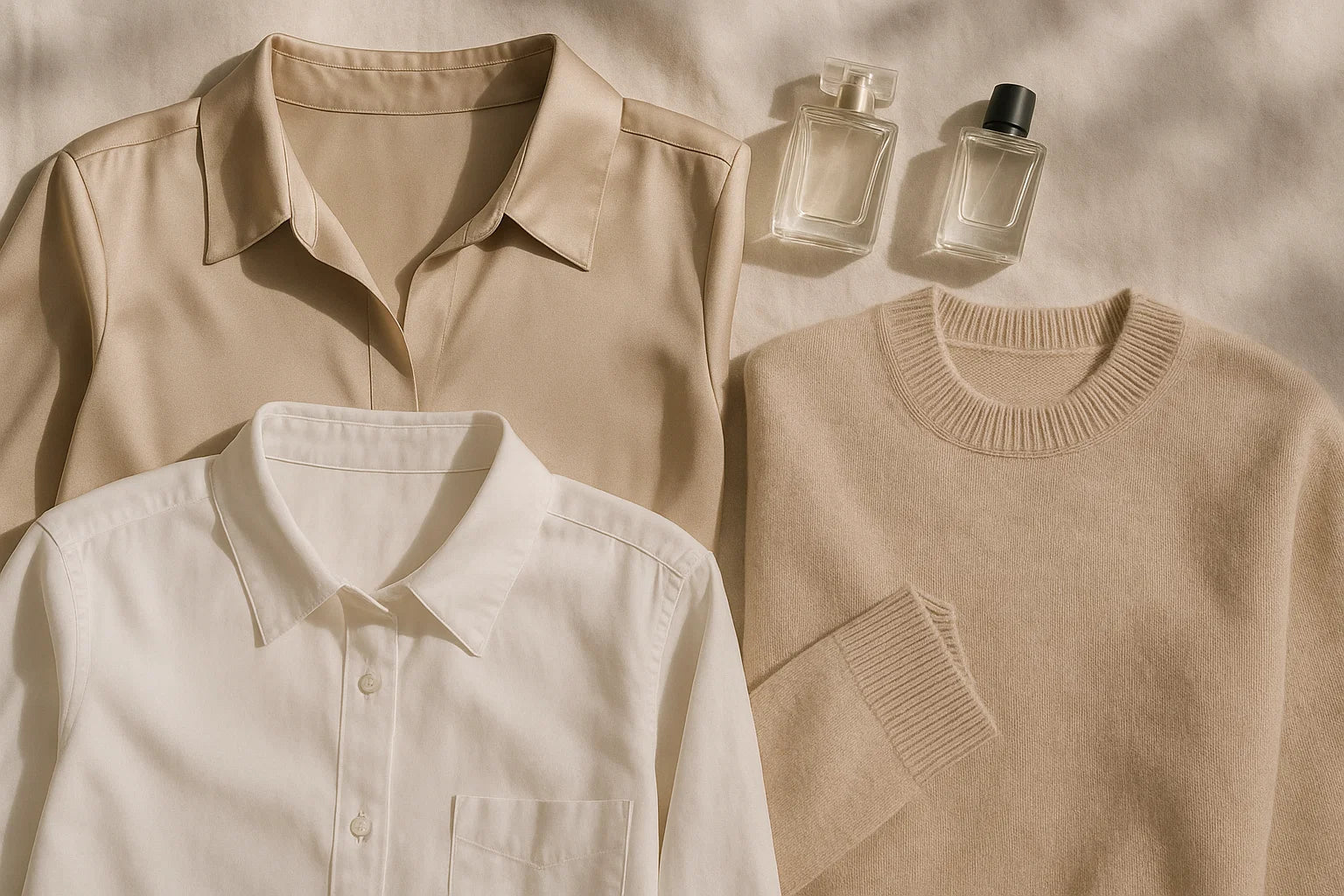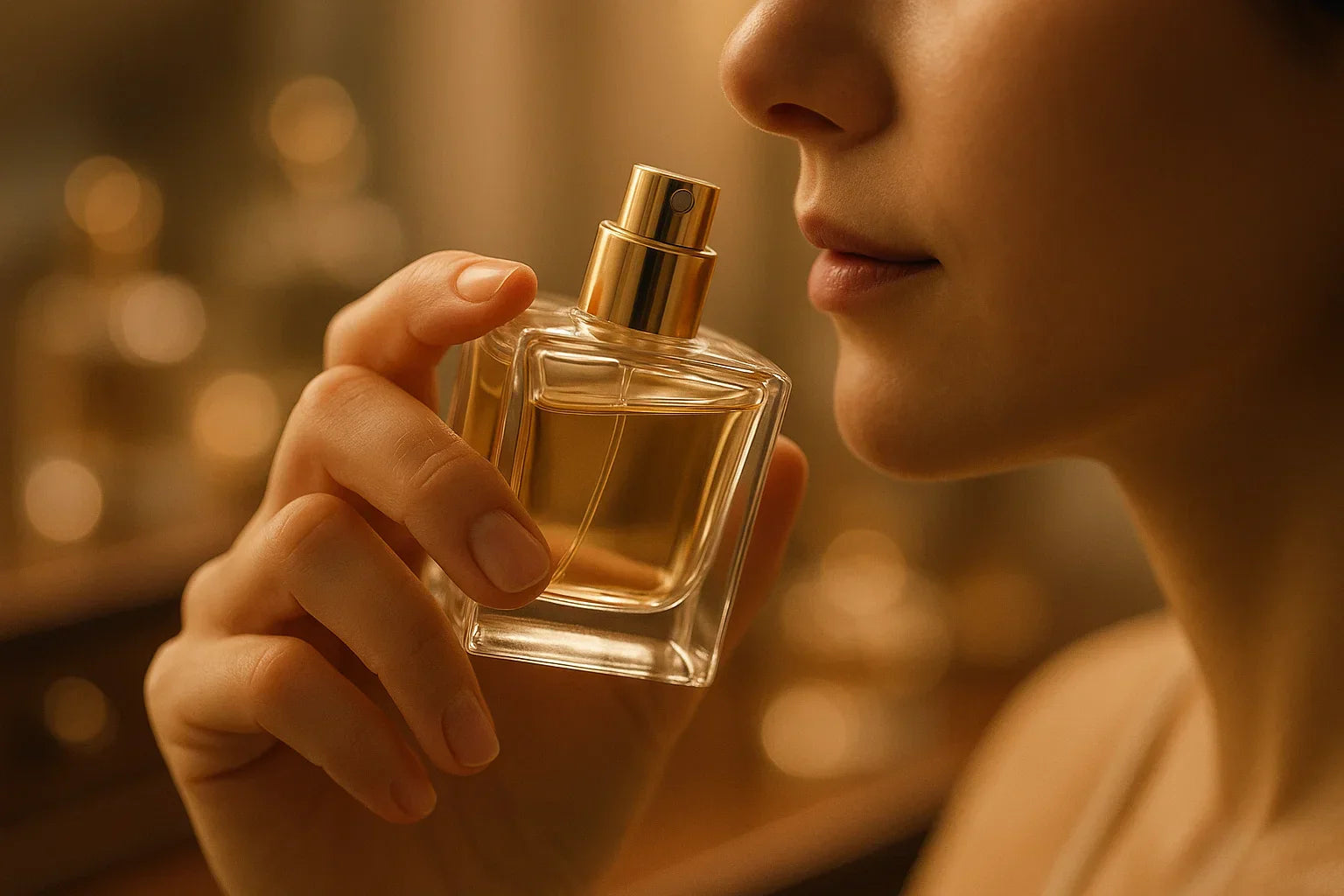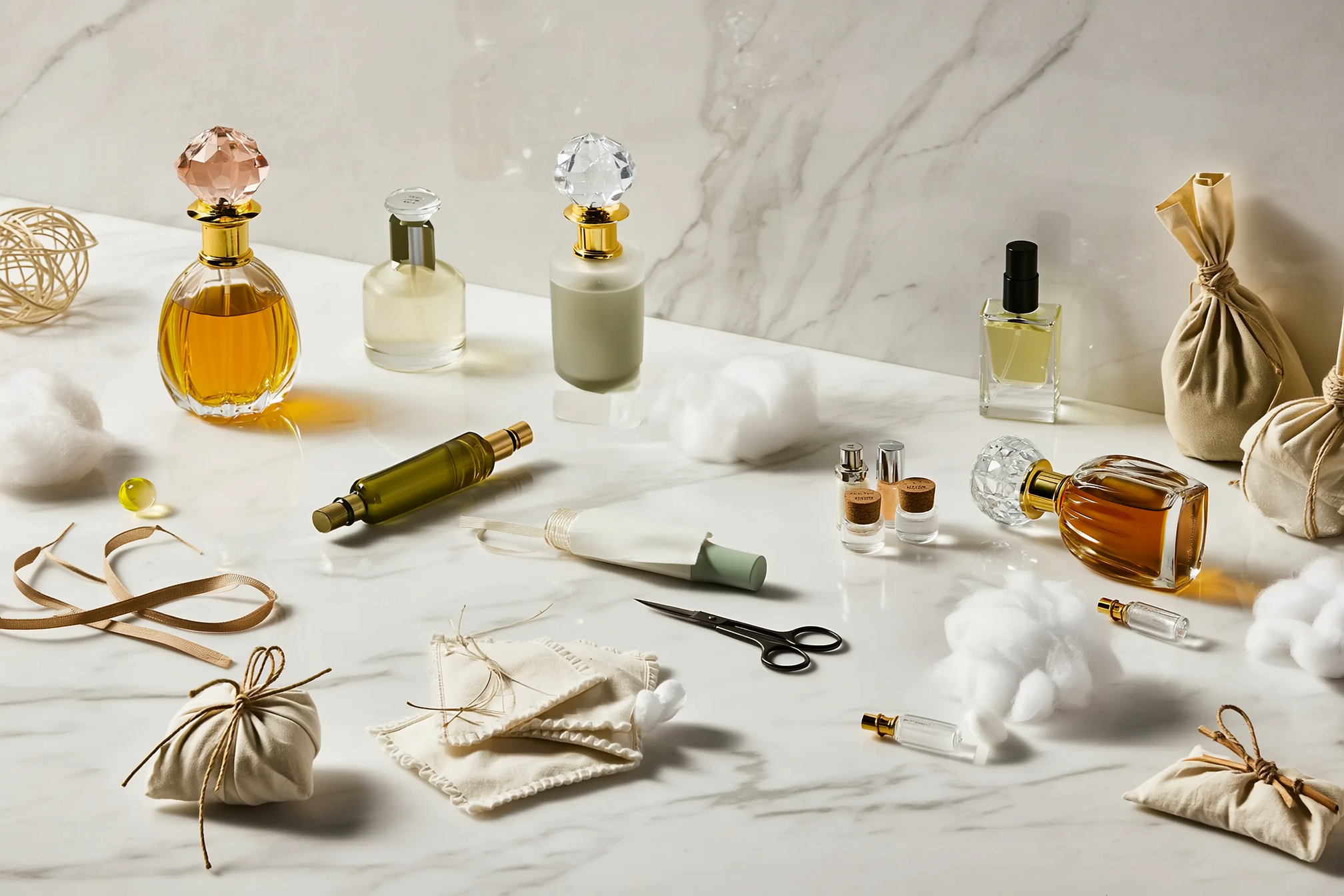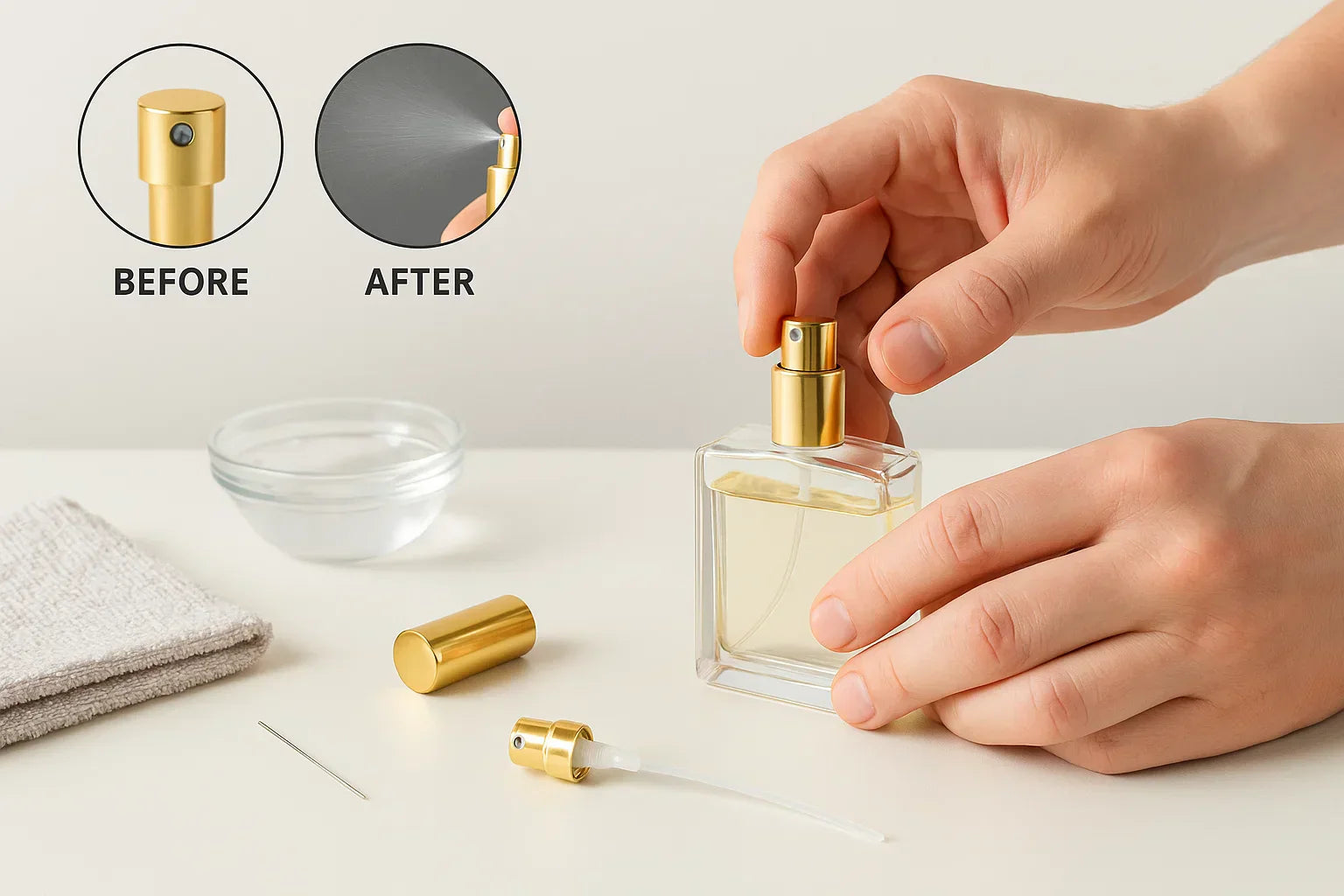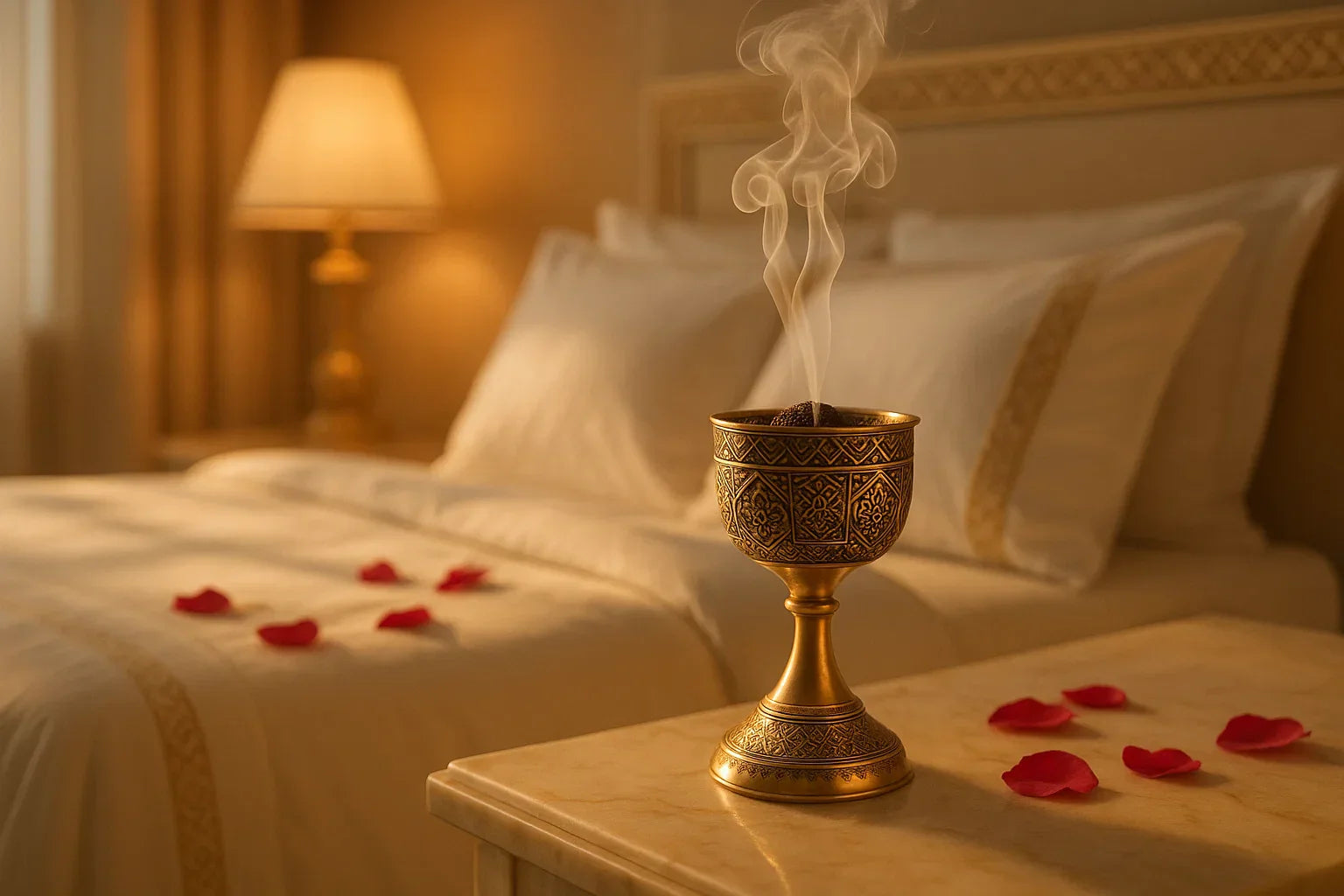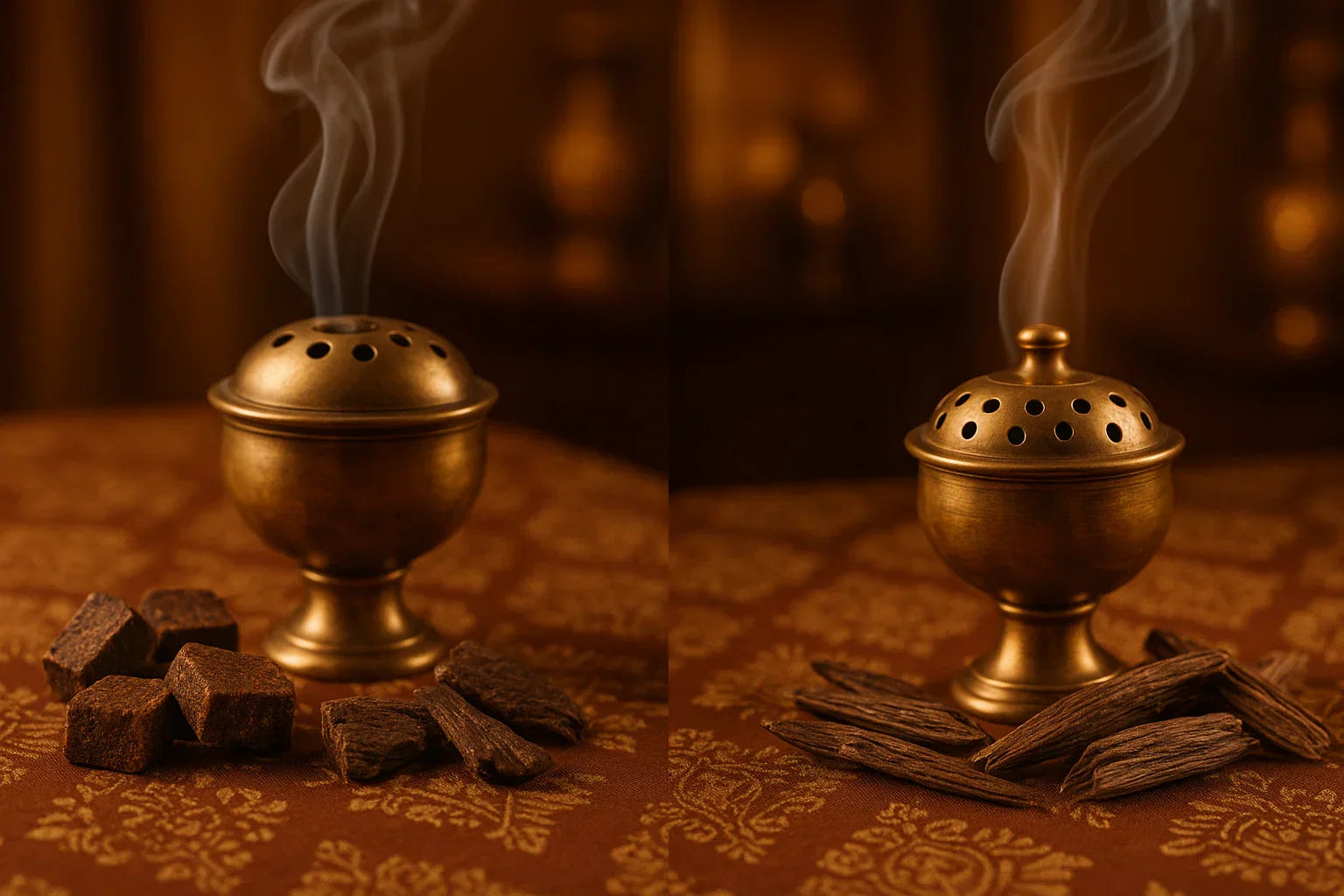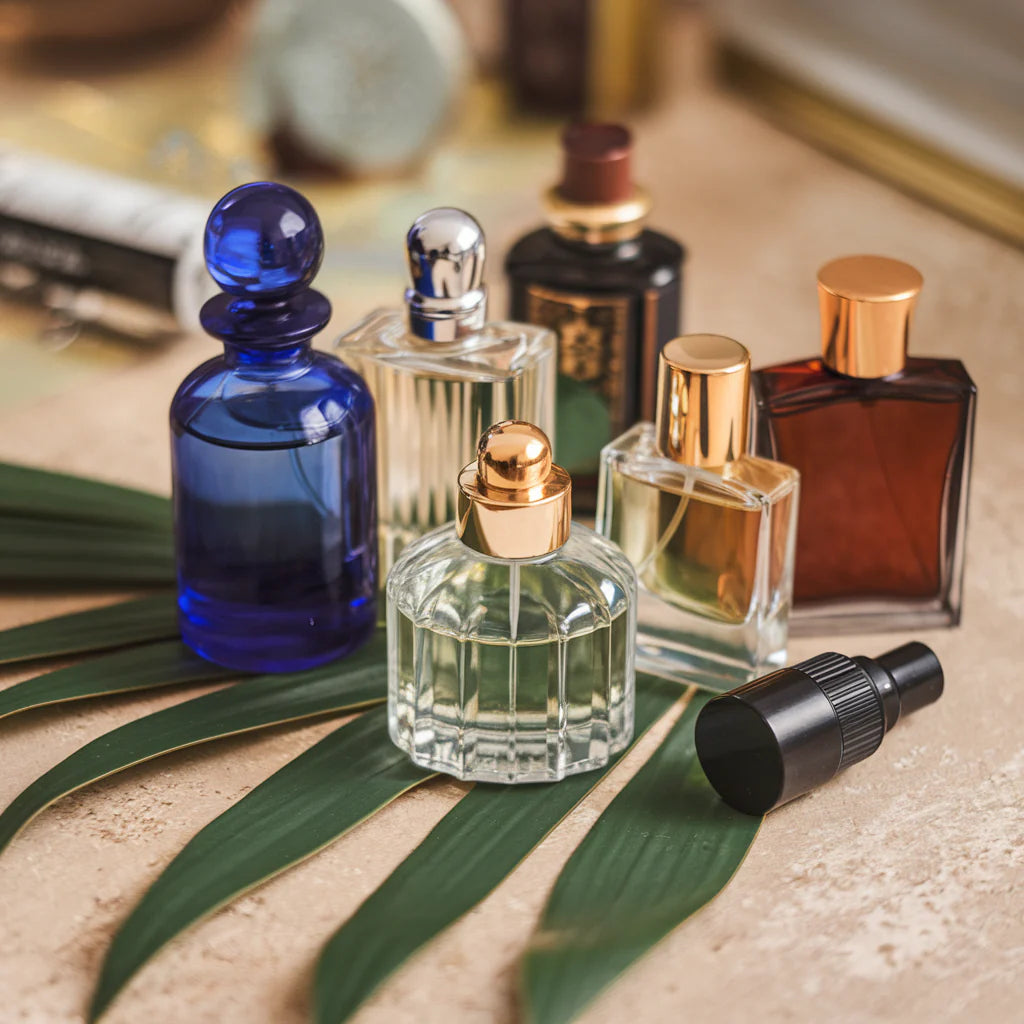
Does Perfume Smell Different on Everyone? The Science of Personal Fragrance
Have you ever wondered why your favorite perfume smells divine on your friend but seems to develop a completely different character when you spray it on yourself? This fascinating phenomenon isn't just your imagination—it's rooted in the complex interaction between fragrance chemistry and our unique biological makeup.
The Personal Chemistry Behind Perfume Variations
When you apply perfume to your skin, you're not simply wearing a scent—you're creating a unique olfactory experience that's exclusive to you. The elegant fragrance notes that captivate your senses undergo a subtle transformation as they mingle with your personal chemistry, resulting in a scent that's as individual as your fingerprint.
This intriguing variation occurs because perfumes don't merely sit on your skin—they interact with it. The moment those carefully crafted fragrance molecules meet your body's natural chemistry, they begin a dance that produces a distinctly personal aroma.
Body Chemistry: The Individual Canvas for Fragrance
Your body chemistry is influenced by several key factors that determine how a perfume will ultimately express itself on your skin:
- pH Balance: The natural acidity of your skin affects how fragrance molecules develop and project
- Body Temperature: Higher body temperatures cause perfume to evaporate more quickly, emphasizing different notes
- Natural Oils: The composition of your skin's sebum interacts uniquely with perfume ingredients
- Hormonal Balance: Fluctuations in hormones can dramatically alter how a perfume smells on you from day to day
"When a perfume meets the skin, it's like introducing two strangers who may become intimate companions or remain at odds," explains perfumery experts. This chemical conversation between your skin and the fragrance creates the distinctive scent experience that others associate with you.
The Layered Architecture of Perfume
To understand why perfumes smell different on everyone, it's helpful to know how fragrances are structured. Every sophisticated perfume is composed of three distinct layers that unfold over time:
Top Notes: The First Impression
The initial scent you detect when applying perfume comes from the volatile top notes. These light, fresh molecules evaporate quickly (usually within 15-30 minutes) but create that crucial first impression.
Top notes might include citrus elements like bergamot and lemon, or light florals such as lavender. These notes evaporate at different rates depending on your body chemistry, which is why the initial impression of a perfume can vary significantly from person to person.
Middle Notes: The Heart of the Fragrance
As the top notes fade, the middle or heart notes emerge, typically lasting 2-4 hours. These notes form the core character of the perfume and often feature fuller floral or fruity elements.
The transition from top to middle notes and how these heart notes develop is profoundly influenced by your skin's natural oils and pH level. Some people's chemistry might enhance certain floral notes while diminishing others, creating a truly personalized expression of the fragrance.
Base Notes: The Lasting Impression
The foundation of every luxurious perfume lies in its base notes—the deep, rich elements that linger longest on the skin. Typically composed of woods, amber, musk, or oud, these notes can last 6-8 hours or longer.
Your body temperature plays a significant role in how these base notes develop. Individuals with naturally warmer skin will experience a different projection of these notes compared to those with cooler skin temperatures.
Environmental Factors That Influence Fragrance Expression
Beyond your inherent body chemistry, several external factors influence how a perfume develops on your skin:
Climate and Weather Conditions
Humidity and temperature significantly affect perfume performance. In warmer, more humid environments, fragrances tend to project more strongly as the heat accelerates the evaporation process. Conversely, in cooler, drier conditions, the same perfume might seem more subtle and closer to the skin.
This explains why your signature scent might smell different during summer vacations compared to winter evenings, and why the same perfume can present differently on people living in various climates.
Diet and Lifestyle Choices
What you eat and drink has a remarkable impact on how perfume expresses itself on your skin:
- Spicy Foods: Can increase body temperature and alter the way fragrance develops
- Hydration Levels: Well-hydrated skin provides a different foundation for perfume than dry skin
- Smoking: Significantly changes your skin's chemistry and how fragrances interact with it
- Medications: Certain medications can alter body chemistry and affect fragrance expression
Even temporary factors like stress levels can influence your body's chemistry and, consequently, how a perfume smells on you throughout the day.
The Psychology of Perfume Perception
Intriguingly, the differences in how we perceive perfumes aren't solely physical—there's a significant psychological component as well. Our sense of smell is intimately connected to our emotional memory, which means that personal associations and experiences color how we perceive fragrances.
This explains why two people might have completely different emotional responses to the same scent. Where one person detects warm, comforting notes that remind them of childhood, another might perceive formal, sophisticated elements that evoke professional settings.
These emotional connections to perfumes influence not only how we experience scents but also how we describe them to others.
Choosing Perfume That Works With Your Chemistry
Understanding that perfumes smell different on everyone opens up a thoughtful approach to fragrance selection. Rather than simply purchasing a scent because it smells wonderful on someone else or in the bottle, consider these refined strategies:
Test Before You Invest
The most elegant approach to fragrance selection is to sample a perfume on your own skin and observe how it develops over several hours. What smells divine in the first few minutes might evolve into something quite different as the day progresses.
Luxury perfume houses know this well, which is why they offer samples and encourage customers to experience how fragrances develop uniquely on their skin before making a purchase decision.
Consider Your Natural Scent Profile
Some people naturally have warmer, spicier skin chemistry, while others have cooler, more neutral profiles. Understanding your natural scent can help you select fragrances that will harmonize beautifully with your personal chemistry:
- Warm Skin Chemistry: Often enhances oriental, amber, and spice notes
- Cool Skin Chemistry: Typically works well with fresh, green, and clean fragrances
- Neutral Skin Chemistry: Can accommodate a wide range of scent families
Perfume Categories That Vary Most Person-to-Person
Certain fragrance families show more variation from person to person than others:
Most Variable:
- Fragrances with prominent musk notes
- Perfumes featuring amber as a key component
- Scents with significant proportions of natural oils
More Consistent:
- Fresh, citrus-dominant compositions
- Single-note fragrances
- Fragrances with high concentrations of synthetic molecules
The Art of Layering for a Truly Unique Scent
Connoisseurs of fine fragrance often create signature scents by layering multiple perfumes to achieve a composition that's uniquely their own. This sophisticated practice can help address how perfumes interact differently with individual body chemistry.
Learning to layer perfumes allows you to customize and fine-tune your fragrance experience. For example, if you find that floral notes fade quickly on your skin, you might layer a floral fragrance over a complementary base with stronger staying power.
Perfume Concentration and Individual Variation
The concentration of fragrance oils in a perfume also affects how differently it might smell from person to person:
- Parfum/Extrait: With 20-30% fragrance concentration, these offer the most authentic scent experience and typically show less variation between individuals
- Eau de Parfum: At 15-20% concentration, these show moderate variation from person to person
- Eau de Toilette: With 5-15% concentration, these lighter formulations may show more significant variation on different skins
Understanding the difference between these concentrations can help you select fragrances that will express more consistently across different wearers if that's your preference.
Embracing Your Unique Fragrance Expression
The fact that perfumes smell different on everyone isn't a disadvantage—it's one of the most magical aspects of fine fragrance. This individual expression ensures that when you find a perfume that works beautifully with your chemistry, you're enjoying a truly personalized olfactory experience that can become your signature.
Luxury perfumery celebrates this individuality, crafting complex compositions with numerous ingredients that will evolve differently on each wearer, creating countless variations of the same masterpiece.
Conclusion: The Personal Signature of Scent
Yes, perfume does smell different on everyone—and this remarkable quality transforms fragrance from a simple product into a deeply personal art form. Your body chemistry, environment, lifestyle, and even emotional state all contribute to how a perfume ultimately expresses itself on your skin.
This individualized experience is what makes fragrance such an intimate and powerful form of self-expression. Rather than seeking perfumes that smell identical on everyone, embrace the unique way that fragrances develop on your skin. After all, in the world of luxury perfumery, it's this personal signature that elevates wearing fragrance from a routine to a sophisticated ritual of self-expression.
The next time you're selecting a new fragrance, remember that you're not just choosing a scent—you're entering into a chemical conversation that will produce something uniquely yours. Take time to discover how different notes interact with your personal chemistry, and you'll develop not just a perfume collection, but a wardrobe of individualized olfactory expressions that are exclusively, distinctively you.
